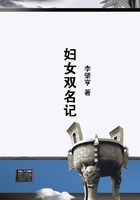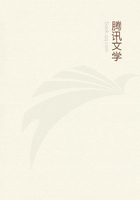It would be out of place to carry the illustration further. To attempt to investigate what kind of government is suited to every known state of society would be to compose a treatise, not on representative government, but on political science at large. For our more limited purpose we borrow from political philosophy only its general principles. To determine the form of government most suited to any particular people, we must be able, among the defects and shortcomings which belong to that people, to distinguish those that are the immediate impediment to progress; to discover what it is which (as it were) stops the way. The best government for them is the one which tends most to give them that for want of which they cannot advance, or advance only in a lame and lopsided manner. We must not, however, forget the reservation necessary in all things which have for their object improvement, or Progress; namely, that in seeking the good which is needed, no damage, or as little as possible, be done to that already possessed. A people of savages should be taught obedience but not in such a manner as to convert them into a people of slaves. And (to give the observation a higher generality) the form of government which is most effectual for carrying a people through the next stage of progress will still be very improper for them if it does this in such a manner as to obstruct, or positively unfit them for, the step next beyond. Such cases are frequent, and are among the most melancholy facts in history. The Egyptian hierarchy, the paternal despotism of China, were very fit instruments for carrying those nations up to the point of civilisation which they attained. But having reached that point, they were brought to a permanent halt for want of mental liberty and individuality; requisites of improvement which the institutions that had carried them thus far entirely incapacitated them from acquiring; and as the institutions did not break down and give place to others, further improvement stopped.
In contrast with these nations, let us consider the example of an opposite character afforded by another and a comparatively insignificant Oriental people- the Jews. They, too, had an absolute monarchy and a hierarchy, their organised institutions were as obviously of sacerdotal origin as those of the Hindoos. These did for them what was done for other Oriental races by their institutions- subdued them to industry and order, and gave them a national life. But neither their kings nor their priests ever obtained, as in those other countries, the exclusive moulding of their character. Their religion, which enabled persons of genius and a high religious tone to be regarded and to regard themselves as inspired from heaven, gave existence to an inestimably precious unorganised institution- the Order (if it may be so termed) of Prophets. Under the protection, generally though not always effectual, of their sacred character, the Prophets were a power in the nation, often more than a match for kings and priests, and kept up, in that little corner of the earth, the antagonism of influences which is the only real security for continued progress. Religion consequently was not there what it has been in so many other places- a consecration of all that was once established, and a barrier against further improvement. The remark of a distinguished Hebrew, M.
Salvador, that the Prophets were, in Church and State, the equivalent of the modern liberty of the press, gives a just but not an adequate conception of the part fulfilled in national and universal history by this great element of Jewish life; by means of which, the canon of inspiration never being complete, the persons most eminent in genius and moral feeling could not only denounce and reprobate, with the direct authority of the Almighty, whatever appeared to them deserving of such treatment, but could give forth better and higher interpretations of the national religion, which thenceforth became part of the religion. Accordingly, whoever can divest himself of the habit of reading the Bible as if it was one book, which until lately was equally inveterate in Christians and in unbelievers, sees with admiration the vast interval between the morality and religion of the Pentateuch, or even of the historical books (the unmistakable work of Hebrew Conservatives of the sacerdotal order), and the morality and religion of the Prophecies: a distance as wide as between these last and the Gospels. Conditions more favourable to Progress could not easily exist: accordingly, the Jews, instead of being stationary like other Asiatics, were, next to the Greeks, the most progressive people of antiquity, and, jointly with them, have been the starting-point and main propelling agency of modern cultivation.
It is, then, impossible to understand the question of the adaptation of forms of government to states of society without taking into account not only the next step, but all the steps which society has yet to make; both those which can be foreseen, and the far wider indefinite range which is at present out of sight. It follows, that to judge of the merits of forms of government, an ideal must be constructed of the form of government most eligible in itself, that is, which, if the necessary conditions existed for giving effect to its beneficial tendencies, would, more than all others, favour and promote not some one improvement, but all forms and degrees of it.
This having been done, we must consider what are the mental conditions of all sorts, necessary to enable this government to realise its tendencies, and what, therefore, are the various defects by which a people is made incapable of reaping its benefits. It would then be possible to construct a theorem of the circumstances in which that form of government may wisely be introduced; and also to judge, in cases in which it had better not be introduced, what inferior forms of polity will best carry those communities through the intermediate stages which they must traverse before they can become fit for the best form of government.
Of these inquiries, the last does not concern us here; but the first is an essential part of our subject: for we may, without rashness, at once enunciate a proposition, the proofs and illustrations of which will present themselves in the ensuing pages; that this ideally best form of government will be found in some one or other variety of the Representative System.













